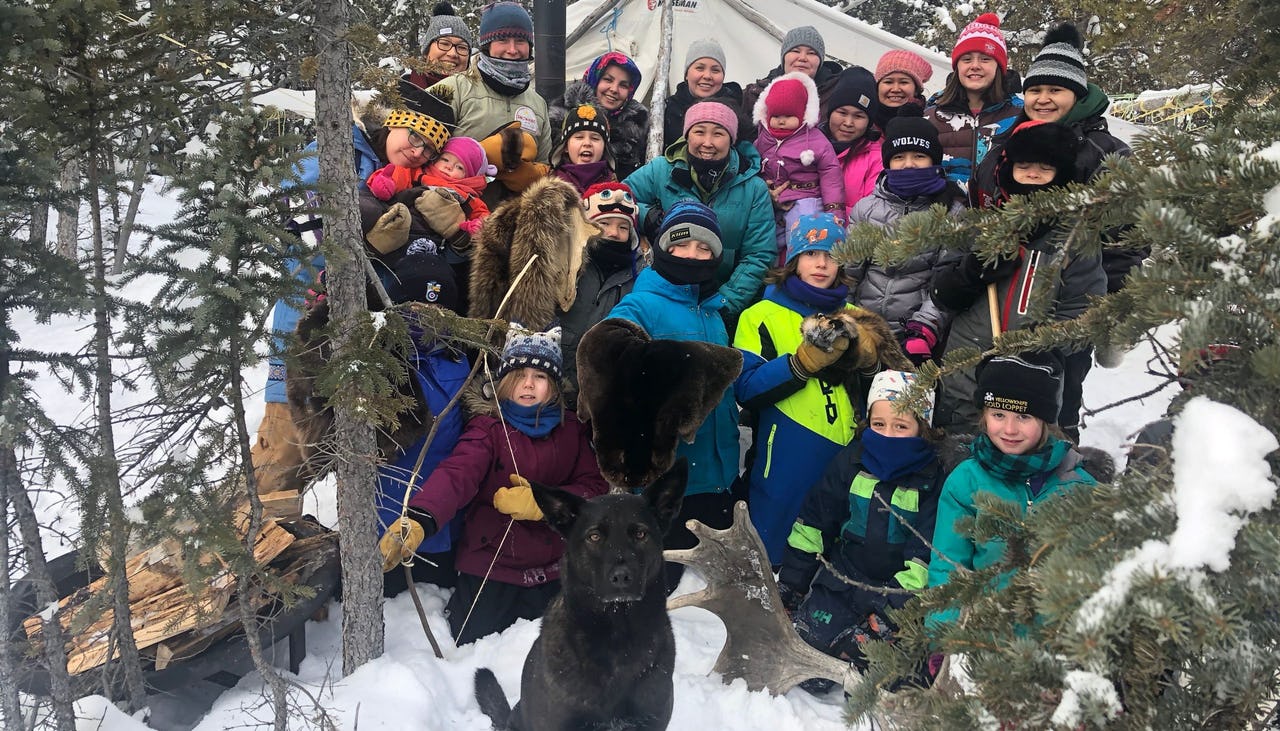Education Policy to Supports On-Land Learning in Northwest Territories

Creating a curriculum that supports on-land learning is critical to supporting equitable, ethical Arctic education. Photo: The Gordon Foundation
Through a partnership with the Gordon Foundation, The Arctic Institute is publishing a series of papers on Canadian Arctic policy critiques and solutions written by Jane Glassco Northern Fellows. The Jane Glassco Northern Fellowship Program recognizes the leadership potential of northern Canadians aged 25-35 who are passionate about addressing emerging policy challenges and building a strong North. During the 18-month program, Fellows deepen their understanding of important northern issues, and develop the skills to articulate and advance their ideas and policy research. Fellows publish individual and group policy research papers. For more information, please visit The Gordon Foundation website and follow the Fellowship on Twitter.
- Turning to Traditional Processes for Supporting Mental Health
- Treaties, Modern Negotiation, and Indigenous Resource Management in the Canadian Arctic
- School Curriculum for Arctic Youth Must Include Land Claim Agreements
- Balancing Worldviews: Climate Change Solutions in Canada’s North
- Ways Forward in Addictions Programming in the Canadian Arctic
- Indigenous Language, Community, and Legends in Post-Secondary Education
Sézi Chloe Dragon Smith súlyé. Dënendeh ts’į?ást’į. Sé ts’í ?amá Brenda Dragon hulyé, Sé ts’í ?abá Leonard Smith hulyé.
My own journey of connection began long ago with respect for those who came before me. I am referring to women who were shaped by the Land, generation after generation, life by life, who steadily and consciously pass on the values of the Land, of human connection, and of relationship. My Dënesųłiné ancestors lived seasonally and travelled all over the Northwest Territories (NWT): north of Great Slave Lake up to the tundra, and south of Fort Smith into northern Alberta and Saskatchewan. They are my maternal lineage and the two closest are my own mother, Brenda Dragon, and her mother, Jane Dragon. Within my memory, this story begins with them. My mother and grandmother placed value on raising me with a connection to our culture and to Land, just as their mothers did before them. I am very grateful to my entire family for making these choices.
A place that is very special to our family is our cabin on the Taltson River, sitting on the banks where the river meets Deskenatlata Lake. It’s a one-room cabin; eight bunk beds rest at the back, a table sits in the middle, with a wood stove and a tiny kitchen at the other end. It was this place where we lived with the Land, harvesting in the fall: moose, duck, rabbit, and fish. For my younger brother Joel and me, learning through explorative play shaped who we are today. We learned skills from our traditional ways of life and from the Land. We learned the value of engaging all our senses. We learned how to resist our impulses, sometimes simply and repetitively by sitting patiently waiting for ducks to fly in. We learned about cycles of life and death through immersion in ecosystems, including harvesting animals. We learned to work together in emergency situations, or just difficult ones: for example, having to clean and transport a moose killed far down the lake, in blustery, wintery conditions. We learned basic skills from the Land including that Nature cannot be controlled and that we needed to be flexible and adaptable to our environment. The weather always teaches us that lesson! We learned to take opportunities as they come, and to always manage those opportunities with their inherent risks. I have grown to appreciate these wise life teachings from the Land, and I believe they could have only come from spending time with Nature.
In the NWT, we all live in a territory where life is constantly shaped by Land. Since time immemorial, the evolution of plants, animals, peoples, cultures, languages, knowledge, and ways of life have all taken shape on the Land. Relationships dictate this evolution: relationships with ourselves, others, the spiritual world, and the Land itself. Spending time outdoors allows us to tap into understandings of natural law – the way Nature is designed to work when humans are connected, respectful, and working in harmony with her. Ultimately, on-the-Land learning gives us the opportunity to understand Nature, and through that, ourselves and our interconnected cultures.
Chloe Dragon Smith was born and raised in Yellowknife, NWT. Of Dënesųłiné, French, and German heritage, she grew up close to her Indigenous cultural values and learned traditional skills for living on the land.